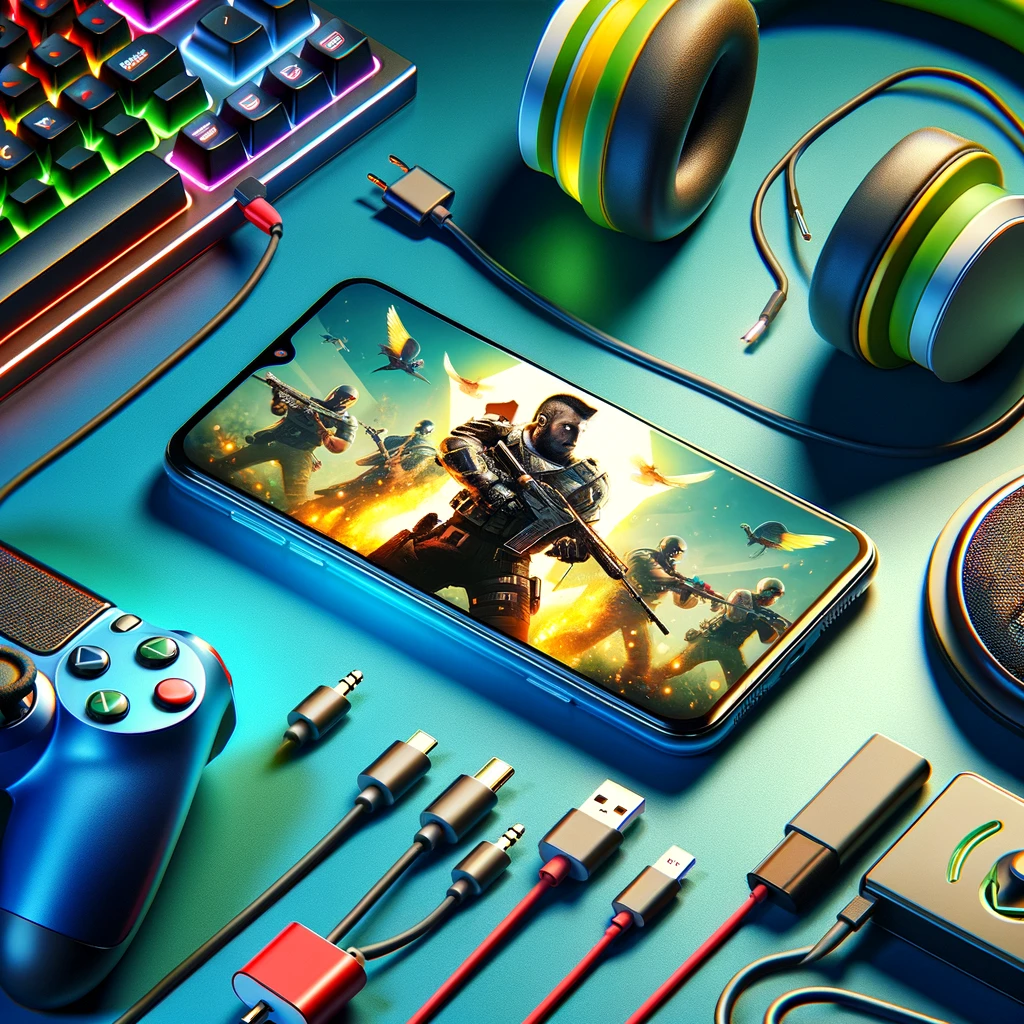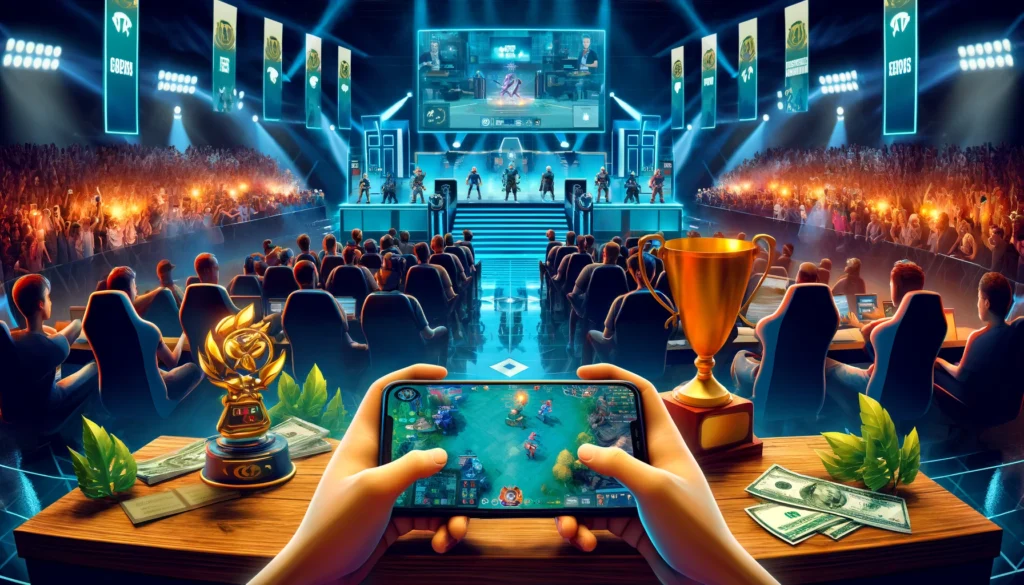In recent years, the gaming industry has experienced an unprecedented surge in popularity, and gaming apps have been at the forefront of this revolution. What was once a niche hobby is now a billion-dollar industry that reaches millions of people around the globe. From casual games to complex, immersive experiences, gaming apps have transformed the way we play, connect, and entertain ourselves. In this article, we will explore the history, growth, and impact of gaming apps, as well as delve into the various types of games available, their economic significance, and the future of mobile gaming.
The Evolution of Gaming Apps
Early Days
The journey of gaming apps began with the advent of smartphones. Early mobile games like Snake on Nokia phones introduced the concept of gaming on-the-go. These simple yet addictive games paved the way for more sophisticated mobile gaming experiences.
Rise of Smartphones and App Stores
The introduction of the iPhone in 2007 and the subsequent launch of the App Store in 2008 marked a significant turning point. These innovations provided developers with a platform to distribute their games to a global audience. Android’s Google Play Store followed suit, further expanding the reach of mobile gaming.
Technological Advancements
As smartphone technology advanced, so did the capabilities of gaming apps. Improved graphics, faster processors, and better connectivity enabled more complex and visually stunning games. The integration of augmented reality (AR) and virtual reality (VR) has also opened new dimensions for mobile gaming.
Types of Gaming Apps
Casual Games
Casual games are designed for short, quick play sessions and appeal to a broad audience. They often have simple mechanics and are easy to pick up and play. Examples include:
- Candy Crush Saga: A match-three puzzle game that has captivated millions with its addictive gameplay and colorful graphics.
- Angry Birds: A physics-based game where players launch birds at structures to destroy pigs.
Strategy Games
Strategy games require players to plan and make decisions to achieve a specific goal. These games often involve resource management, tactical thinking, and long-term planning. Examples include:
- Clash of Clans: A strategy game where players build and defend their villages while attacking others to gain resources.
- Plants vs. Zombies: A tower defense game where players use plants to fend off waves of zombies.
Role-Playing Games (RPGs)
RPGs immerse players in a fictional world where they take on the role of a character and progress through a story. These games often feature character customization, leveling systems, and narrative-driven gameplay. Examples include:
- Genshin Impact: An open-world action RPG with a gacha system that allows players to collect characters and weapons.
- Final Fantasy XV: Pocket Edition: A mobile adaptation of the popular console RPG, offering an episodic narrative experience.
Simulation Games
Simulation games replicate real-world activities or systems, allowing players to experience scenarios they might not encounter in real life. Examples include:
- The Sims Mobile: A life simulation game where players create and control virtual people, guiding them through various life stages.
- SimCity BuildIt: A city-building game where players design and manage their own cities.
Action/Adventure Games
Action/adventure games combine elements of exploration, combat, and puzzle-solving. These games often feature dynamic storylines and immersive environments. Examples include:
- PUBG Mobile: A battle royale game where players compete to be the last person standing on a shrinking battlefield.
- Fortnite: Another popular battle royale game with building mechanics and vibrant graphics.
Educational Games
Educational games are designed to teach players new skills or knowledge while entertaining them. These games are often used as learning tools for children and adults alike. Examples include:
- Duolingo: A language-learning app that gamifies the process of learning new languages.
- Khan Academy Kids: An educational app for children that covers various subjects through interactive activities.

Economic Impact of Gaming Apps
Revenue Generation
Gaming apps have become a significant source of revenue for the mobile industry. According to a report by Newzoo, the global mobile gaming market was estimated to generate over $90 billion in 2021. This revenue comes from various sources, including:
- In-App Purchases: Many games use a freemium model, offering the game for free while selling in-game items, currency, or premium features.
- Advertisements: Developers often monetize free games by displaying ads to players. This can include banner ads, interstitial ads, and rewarded video ads.
- Premium Purchases: Some games are sold as premium apps, requiring a one-time purchase to download and play.
Job Creation
The success of gaming apps has led to the creation of numerous jobs in game development, design, marketing, and customer support. Companies like Supercell, King, and Niantic have grown into major employers, contributing to the global economy.
Investment and Mergers
The mobile gaming industry has attracted significant investment from venture capital firms and larger tech companies. High-profile mergers and acquisitions, such as Microsoft’s acquisition of Bethesda or Tencent’s investment in various gaming companies, highlight the industry’s economic significance.
Social and Cultural Impact
Community Building
Gaming apps have fostered the creation of vibrant online communities. Players can connect with others around the world, forming friendships and alliances. Social features, such as chat functions and multiplayer modes, enhance the sense of community and collaboration.
Entertainment and Escapism
Mobile games provide a form of entertainment and escapism, allowing players to immerse themselves in different worlds and experiences. This can be particularly valuable during stressful times, offering a mental break and a source of relaxation.
Education and Skill Development
Educational games and apps have made learning more accessible and engaging. They help develop various skills, including problem-solving, critical thinking, and hand-eye coordination. Even non-educational games can improve cognitive abilities and strategic thinking.
Inclusivity and Accessibility
Mobile gaming has made gaming more inclusive and accessible. Smartphones are more affordable and widespread than gaming consoles or high-end PCs, allowing a broader audience to enjoy gaming. Additionally, many games are designed with accessibility features to accommodate players with disabilities.
Challenges and Concerns
Addiction and Screen Time
One of the significant concerns surrounding mobile gaming is the potential for addiction and excessive screen time. Games are designed to be engaging and rewarding, which can lead to prolonged play sessions. This can have negative effects on physical health, mental well-being, and productivity.
Privacy and Data Security
Mobile apps, including gaming apps, often collect user data. This raises concerns about privacy and data security. Users must be aware of the permissions they grant and ensure they use apps from reputable developers.
In-App Purchases and Microtransactions
While in-app purchases are a significant revenue stream for developers, they can also be controversial. Some games employ aggressive monetization strategies, leading to concerns about predatory practices, especially towards younger players. There are also issues related to the transparency of in-app purchases and the potential for overspending.
Quality Control and Clones
The popularity of mobile gaming has led to an influx of low-quality games and clones. These games often provide a subpar experience and can tarnish the reputation of mobile gaming. Ensuring quality control and originality remains a challenge for the industry.

The Future of Gaming Apps
Technological Advancements
As technology continues to evolve, so will the capabilities of gaming apps. The integration of 5G technology will enable faster and more reliable connectivity, enhancing the multiplayer gaming experience. Advances in AR and VR will create more immersive and interactive games.
Cross-Platform Play
Cross-platform play allows players on different devices to play together. This trend is likely to continue, breaking down barriers between mobile, console, and PC gaming. It will create a more unified gaming community and enhance the social aspects of gaming.
Increased Realism
Advances in graphics and processing power will lead to more realistic and visually stunning games. Developers will be able to create more detailed environments, lifelike characters, and sophisticated animations, blurring the line between mobile and console gaming.
AI and Machine Learning
AI and machine learning will play a significant role in the future of gaming apps. These technologies can enhance game design, providing more adaptive and intelligent NPCs (non-player characters). They can also personalize the gaming experience, tailoring content and challenges to individual players.
Sustainability and Ethical Gaming
As the industry grows, there will be a greater focus on sustainability and ethical gaming practices. This includes reducing the environmental impact of game development, promoting fair labor practices, and ensuring games are inclusive and accessible to all players.
Monetization Models
The monetization models for gaming apps will continue to evolve. While in-app purchases and advertisements remain prevalent, developers are exploring new ways to generate revenue. This includes subscription models, where players pay a recurring fee for access to premium content and features.
Conclusion
Gaming apps have revolutionized the entertainment industry, transforming smartphones into powerful gaming devices. The evolution from simple games like Snake to complex, immersive experiences highlights the industry’s rapid growth and innovation. With a wide range of game genres available, there is something for everyone, from casual players to hardcore gamers.
The economic impact of gaming apps is undeniable, generating billions of dollars in revenue and creating countless jobs. The social and cultural influence of mobile gaming extends beyond entertainment, fostering communities, enhancing education, and promoting inclusivity.
As technology continues to advance, the future of gaming apps looks promising. Innovations in AI, AR, VR, and cross-platform play will create even more engaging and immersive experiences. However, it is essential to address the challenges and concerns related to addiction, privacy, and monetization to ensure the industry continues to thrive ethically and sustainably.
Gaming apps have put a billion-dollar industry at our fingertips, offering endless possibilities for entertainment, connection, and creativity. Whether you’re a seasoned gamer or new to the world of mobile gaming, there’s no better time to explore the diverse and exciting world of gaming apps.


